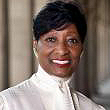Carol Camp Yeakey, PhD, professor and founding director, Interdisciplinary Program in Urban Studies and Center on Urban Research & Public Policy
Anniversaries are usually a time for celebration. However, as we near the August 9 anniversary of the shooting death of Michael Brown, and the grand jury’s subsequent refusal to indict the police officer charged with the shooting, we have seen far too many African Americans lose their lives after questionable encounters with white police officers. There is no cause for festive celebrations. Other cities, other places — Cincinnati, Prairie View, Baltimore, Cleveland, Staten Island, North Charleston, among others — are now bound together in history with Ferguson where unarmed African Americans have died after nonviolent encounters with police. What the tragic events in these cities remind us is that the notion of a post-racial America is illusory as well as a testament to the fact that these incidents do not happen in a vacuum. Almost on a weekly basis we see the impact of racial predisposition, of racial profiling. What these needless deaths tell us is that what is occurring between police officers and people of color in this country is both systemic and structural. At the core of the problem is the need for police and criminal justice reform that goes beyond interpersonal racial reconciliation. What is required is criminal justice reform to legally address and remedy systemic racial inequality.
The incident in Ferguson moved the issues of race and criminal injustice to the forefront of national and international debate. Social media has become the galvanizing force with hashtags and tweets — “I Can’t Breathe” and “Hands-Up, Don’t Shoot” — with demonstrations in cities across the U.S. as well as in Paris, London, Tokyo and Toronto, among others. The phrase “Black Lives Matter” has grown from a slogan to a movement, out of pain and desperation, which some now call the New Civil Rights Movement. These past few months since Ferguson have forced America to confront the fact that race still matters, on both institutional and systemic levels.
With the election of President Barack Obama as America’s first black president, pundits suggested that America’s history of racism and bigotry was behind her, that we now live in a post-racial society. What these tragic events of the past year remind us is how far we have yet to go in confronting the challenges of racial bias and inequities and the uneven distribution of social goods in our society. Incidents in Ferguson and so many other cities paint a portrait of urban marginality and vulnerability borne of economic and racial isolation and segregation. One facet of that marginality and vulnerability is the toxic relationship between minority communities and the criminal justice system. Minority communities historically have felt that law enforcement has been used to enforce laws to harm them, not to protect them. Videos have finally corroborated what African American and other marginalized populations have known for decades. Researchers are now examining the fact that since 2005, among the thousands of fatal shootings at the hands of police, only 54 officers have been charged. Most officers were cleared or acquitted. Body cameras are a necessary, albeit not a sufficient response to the problem of disproportionate deadly force. Ferguson is just one of a long series of the most recent responses to the highly questionable behavior of not only police, but judges and prosecutors involved in the justice system, who display a callous disregard of the lives of marginalized young men and women of color.
What we are witnessing are the growing cleavages in 21st century America and the multifaceted nature of the varied forms of social, political and economic inequalities in the broader society. These intersecting inequalities are mutually reinforced and are made manifest by the growth in income and wealth disparity; disinvestment in communities with poor housing stock; resource allocation of low income, city and predominantly ethnic minority schools; increased racial isolation and residential segregation; measures which restrict the rights of citizens to vote; the evisceration of the Voting Rights Act and a myriad of other forms of inequalities which concurrently interlock to determine the status, income and welfare of lower status persons in general, and persons of color in particular. The foregoing is made worse by the denial of the intransigence of racial profiling and racial animus, whether overt or covert. The collateral damage borne by the historical intergenerational transfer of social immobility and inequality created the same toxic mix in Ferguson on August 9, 2014, that other communities across the country have experienced for decades and are now experiencing today.
As the national headlines and events in 2015 have shown us, there are many Fergusons on the horizon. Herein lies America’s challenge, as well as her opportunity. We must now have the uncomfortable conversations about race, class and bigotry and the systemic hierarchies they create, to benefit some, but not all. As we move toward national elections in 2016, those who suggest that we need to “take our country back,” are mindless of the toxicity of their commentary for an increasingly diverse and pluralistic society. Moreover, “looking back is not a way of looking forward.” Exploiting and making a mockery of our differences as opposed to our common humanity does not make for sound public policy, for the public good. It will take the collective intellect, will and determination of an enlightened citizenry to enact and enforce social policies to confront systemic barriers to social advancement and opportunity, to make the American dream attainable for us all.
